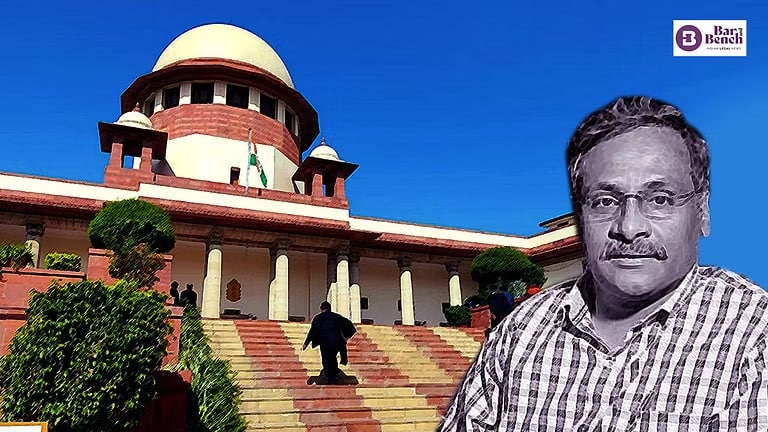Questionable urgency : On the Supreme Court’s stay on G.N. Saibaba’s acquittal
Swift stay on orders of acquittal or discharge show courts in a bad light
The manner in which the Supreme Court has suspended the operation of a Bombay High Court judgment discharging G.N. Saibaba and others in an alleged Maoist conspiracy case is quite unusual and raises critical questions. It is true that their conviction by a trial court — with Prof. Saibaba and four others being sentenced to life and another to 10 years under provisions of the Unlawful Activities (Prevention) Act (UAPA) — was set aside by the High Court not on merits, but only on technical grounds, and the state may feel aggrieved. However, the apex court could have been more restrained while entertaining an appeal against the order. The Court showed extraordinary zeal in fulfilling the Maharashtra government’s wish to have an immediate hearing. A special Bench of Justices M.R. Shah and Bela Trivedi was formed to hear the appeal on a Saturday. Consider the circumstances: the accused have spent years in prison, Prof. Saibaba is disabled, and soon after their discharge, they were required to file a bond under a procedure that requires even those acquitted to be available for further proceedings in case there is an appeal. It is doubtful whether the Court should have responded with such swiftness just to suspend a judgment that has given detailed reasons for discharging the accused. After all, appeals against acquittals are not uncommon.
The gist of the High Court verdict is that in the case of five accused (one of them died in prison), the sanction for their prosecution under UAPA was invalid because material was placed before the sanctioning authority and sanction obtained on the same day, and that there was no summary of the analysis of the evidence made by an independent reviewer to assist the grant of sanction. In the case of Prof. Saibaba, cognisance was taken and even a witness was examined before the sanction order arrived, rendering the entire proceedings void. The Government may have an arguable case, going by Section 465 of the CrPC, that any error, omission or irregularity in the matter of sanction would not vitiate the trial, unless there has been a failure of justice as a result, and that it is a curable defect. However, these issues have been elaborately dealt with by the High Court. The Bench has concluded that when dealing with special laws such as the UAPA, every safeguard provided by the legislature, however small, must be zealously protected. A 1976 judgment does give the Supreme Court the power to suspend an acquittal order, but as a matter of principle, the benefit of acquittal or discharge must not be interdicted by an appellate court without a full hearing.
